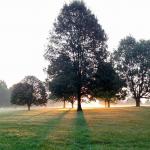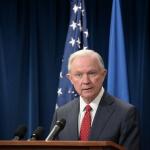Five years ago, Lexington Theological Seminary (LTS) in Kentucky (where I’ve taught preaching and worship since 2016) made the difficult but necessary decision to sell its brick-and-mortar campus. The seminary moved into a suite in a high-rise office building at Lexington Green (an upscale office and retail center), and transformed its curriculum to become an online seminary. Except for in-person intensives in January and June, our students take the bulk of their courses in 2-week or 4-week online modules. The program allows for flexibility and accommodates the busy schedules of our students, many of whom work part-time or full-time in churches or secular professions while taking seminary classes.
There was a concern that by moving online, we would sacrifice a ministry of “presence” in the community.
What we’ve discovered, however, is that the spirit of innovation that inspired LTS’s move to an online platform is now at work as the seminary reimagines what it means to “be church” in this particular setting.
At the forefront of this reimagining is the seminary’s Green Task Force, an environmental coalition made up of LTS faculty, staff, and students.
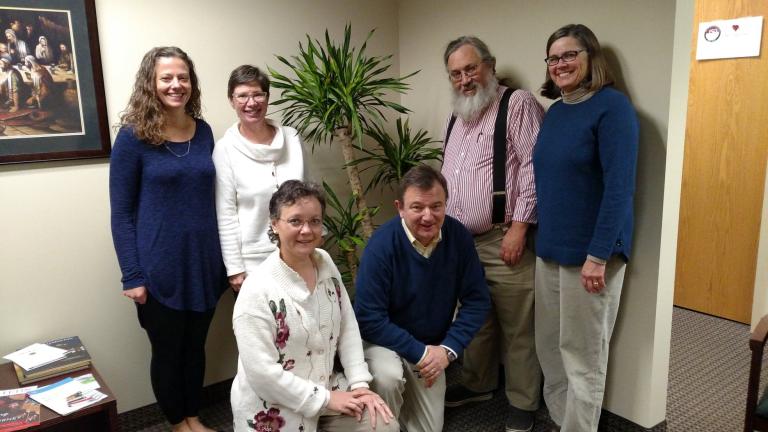
Our motto is “Education, Sustainability, Community.” The team enables the institution to fulfill its mission of “preparing faithful leaders for the church and strengthening the church’s participation in God’s mission for the world” by attending to the ecological justice issues that affect ministry and God’s Creation. The group focuses on both short-term and long-range goals for helping the seminary bring healing and wholeness to Creation and God’s people. Academic curriculum, worship, building and grounds, community life, and public ministry are all areas where we look for ways to holistically participate in God’s restoration of our planet. For example, in addition to offering several courses that reflect a commitment to ecologically-informed theological education, we’ve been recycling, composting our coffee grounds, using Fair Trade products, and leading a Creation-centered worship service during intensives.
But we wanted to do more.
We wanted to live out our motto of “Education, Sustainability, Community” beyond our office suite and the circle of our online students. We wanted to see if we could create that “ministry of presence” right where we are, situated among corporate offices and businesses enclosed in glass and steel.
So in April, the Green Task Force held an Earth Day event for the Lexington Green office buildings.
We set up a table in the quad between the two buildings and offered free seed packets.
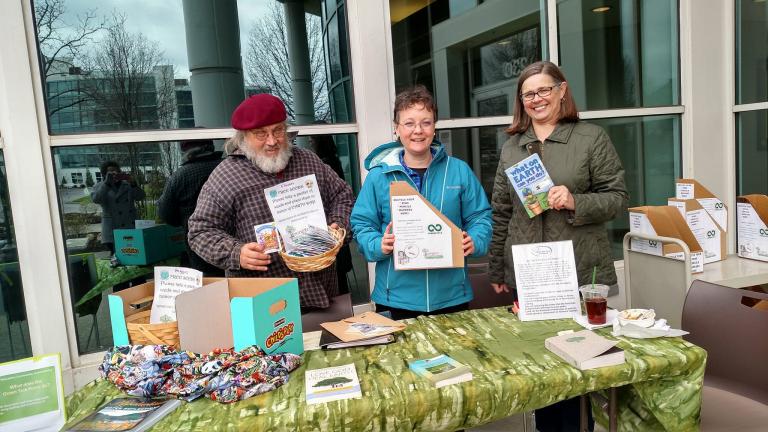
We gave out information on a new short-term recycling effort we were kicking off for the two buildings involving recycling pens, pencils and markers through Terracycle. And during the lunch hour, we invited Doodles, a local “Kentucky Proud” food truck that serves locally-sourced foods.
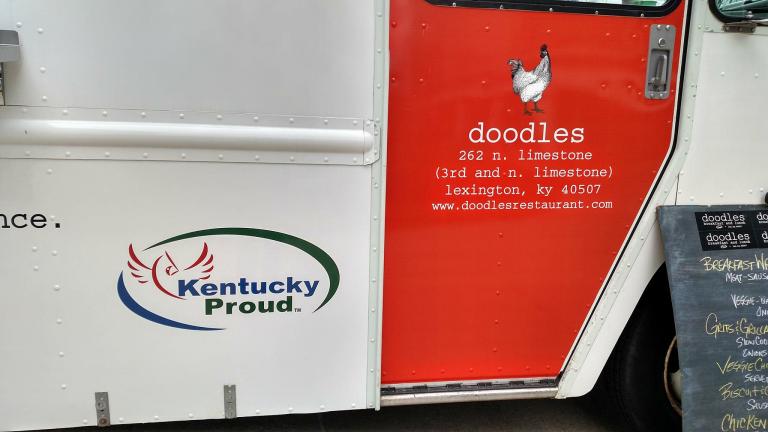
Despite the cold, windy weather, the day was a great success compared to the previous year when we invited people to our Earth Day worship service in our chapel space and no one came except our own faculty and staff. This year, about 30 people came out to the Doodles food truck, and many of them came to the table we set up next to our building.
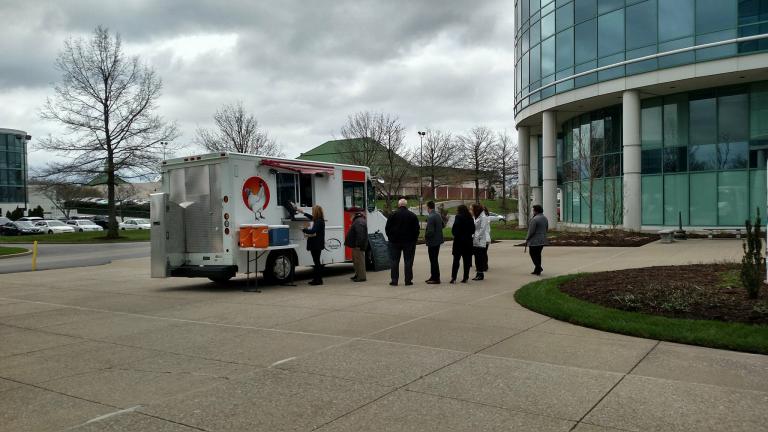
Many people chose seeds from the baskets and took collection boxes for the Terracycle project to their offices. Several thanked us for hosting the event and said it was a great idea. We plan to have an Earth Day event annually so that the community comes to look forward to it each year.
Friendly “green” visits
A few days after the event, Erin Cash (our Director of Admissions) and I visited office suites in both buildings to set up collection boxes for the pens in convenient locations (with the permission of the building manager, of course).
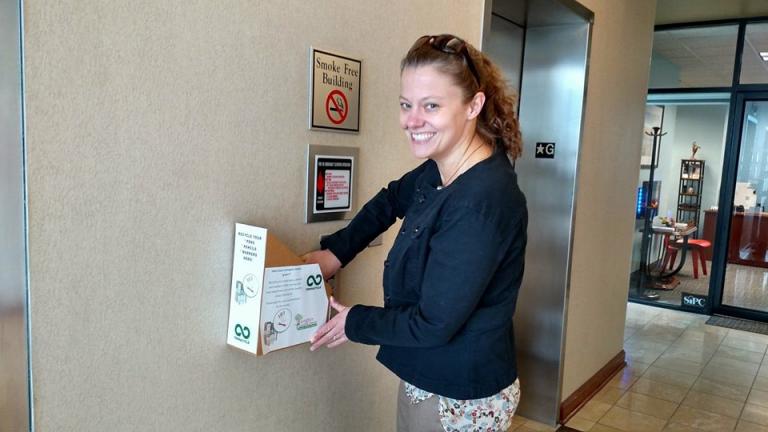
We also went to offices and gave away more of the seed packets. People were pleasantly surprised to have a friendly “green” visit and delighted in choosing vegetable and flower seeds. Every few weeks after that, we made the rounds to all the boxes and are filling up the main box that we will ship to Terracycle. The collected waste will be separated into metals, fibers, and plastics and used in recycled products. One small step to help Lexington Green go “green”!
Creating community
At our next GTF meeting, we had a discussion about the “community” aspect of the event. Erin and I talked about how surprised we were to be allowed – no, invited – into people’s offices and cubicles to give out seeds and collect pens for recycling. Wilson Dickinson, our Director of the Doctoral Ministry Program and professor of theology, noted that this event is worth theological reflection. Given the “cubicle” culture in which we live and work that is premised on unlimited capital growth but limited human engagement, it was a poignant moment of ministry to be invited into people’s offices and work spaces to share seeds and collect pens, pencils, and markers. We created openings for relationship and sustainability in the midst of a culture that is opposed to such sustainability and puts up barriers to community.
In a small but significant way, we challenged the notion that people must “come to church” in order to receive blessings.
There was something incarnational about being in the quad with our seed table and the food truck, and then going out to the offices with little packets of seeds to give, and little pen-collection boxes to receive. Exchanges of grace happened in places where they are not expected, or even supposed to happen at all.
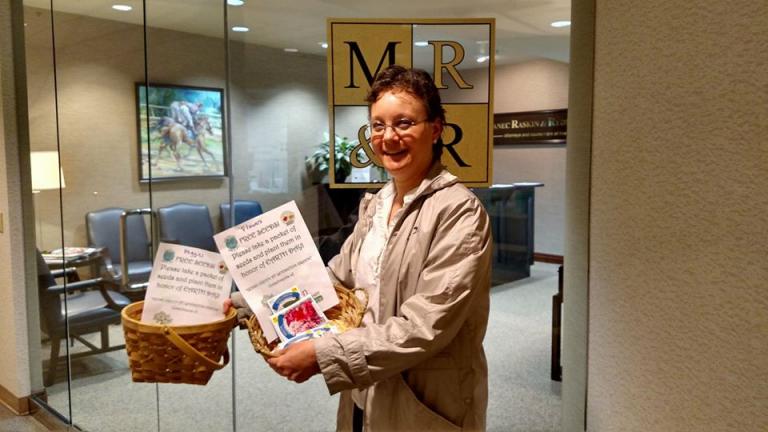
This experience also contests the notion that an online seminary is unmoored from in-the-flesh ministry.
We learned that we may actually have more opportunities to create connections than a comparable bricks-and-mortar seminary located on a beautiful campus, but perhaps isolated from their surrounding neighbors. In contrast, our online seminary is right in the heart of an office complex where nearly 250 people come to work five days a week. Rarely do any of us acknowledge each other unless we happen to be sharing an elevator, and then the exchanges are mere courteous pleasantries.
But now I know that the receptionist in one of the offices goes to the church of our seminary president, Charisse Gillett. I learned that one woman is making a special effort to clean out desks of vacant offices so she can find more pens for us. Charlie, our Archival Librarian, learned from one woman that she plants only heirloom seeds in her garden. Erin even learned that one person doesn’t approve of the collection boxes! (Erin tactfully responded by complimenting the peonies on her desk.) What’s important is that connections have been made, and the potential for more meaningful relationships is right above us, below us, and across from us here on the third floor of our glass-enclosed office building!
I believe our Earth Day event models what it means to “be church” wherever we’re planted (pun intended).
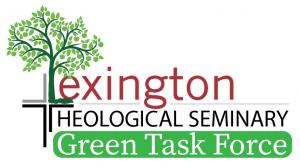
It raises thoughtful questions for our students, alumni, and supporters to consider. What does it look like to be church in an office complex where people go to every day but rarely interact? What does it mean to build relationships with people who may be of different faiths, or who do not practice any religion? What might we do in the future to become a place where people turn to when they need spiritual sustenance? Could we offer brief healing or prayer services once a month during the lunch hour? Could we distribute ashes on Ash Wednesday? Could we offer a special service during the Advent season to help people deal with the “holiday blues”?
We now see possibilities for a ministry of presence all around us, challenging us to rethink what it means to “be church.” However these blooms emerge, the ministry of the Green Task Force – and Lexington Theological Seminary – is definitely beginning to “bud”!
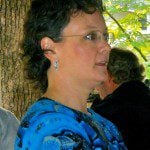
Leah D. Schade is the Assistant Professor of Preaching and Worship at Lexington Theological Seminary (Kentucky) and author of the book Creation-Crisis Preaching: Ecology, Theology, and the Pulpit (Chalice Press, 2015). She is an ordained minister in the Lutheran Church (ELCA).
Twitter: @LeahSchade
Facebook: https://www.facebook.com/LeahDSchade/.
See also:
Spreading the Gospel of Trees: Healthy Trees, Healthy People, Healthy Faith
Beyond Earth Day: 10 Ideas for Environmental Advocacy and Activism in Your Church


